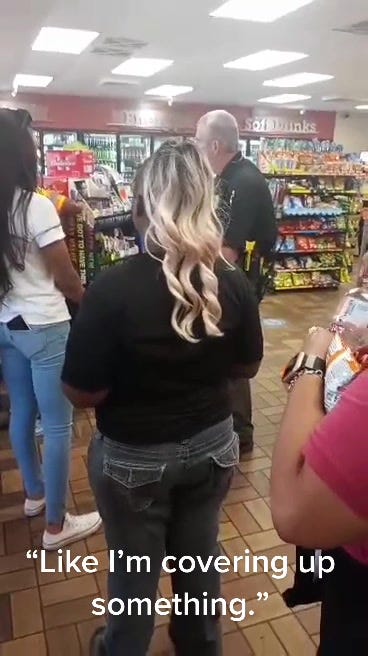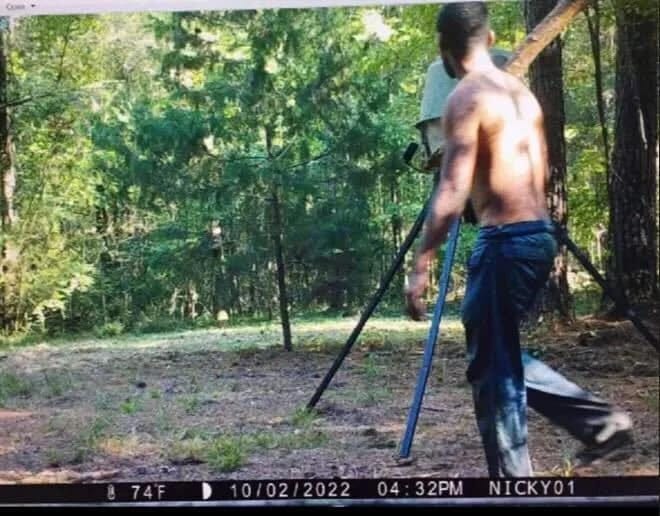What Happened to Rasheem Carter?
Police claim there was no foul play in Rasheem Carter’s death, but the facts in the Taylorsville, Mississippi case point to a possible lynching
Rasheem Carter disappeared in early October 2022 in Taylorsville, Mississippi. The 25-year-old went missing after he reported to police that he was being followed by white men yelling racial slurs in three separate trucks. A month later, Smith’s remains were discovered on private property in a wooded area. The next day, the Smith County Sheriff’s Office said in a Facebook post that it believed there was no foul play despite finding only his skull and some of his bones - decomposition that normally takes longer than 30 days.
“On Tuesday, November 2, 2022, Smith County Sheriff’s Department located the remains of Rasheem Carter just south of Taylorsville, MS, in a wooded area,” the statement read. “Carter was initially reported missing on October 2, 2022, in Laurel, MS. Thank you to the public who turned in pertinent information regarding Carter’s whereabouts. At this time, we have no reason to believe foul play was involved, but the case is still under investigation. The remains were transported to MS Crime Lab for DNA confirmation.”
When the level of decomposition was mentioned, the sheriff allegedly suggested to Carter’s mother that wild animals may have eaten her son’s flesh. The sheriff’s department denies not taking Carter’s disappearance seriously and also denies that there is a cover-up. But a private investigator hired by the family alleges police mishandled the case and civil rights attorney Ben Crump says the skull had no teeth when it was found.
Smith County Sheriff Joel Houston didn’t contact Rasheem’s mother until a month after his disappearance. She was called in to identify Carter in an image on a hunter’s game camera that captured Carter in the area. After she confirmed it was him, a search using cadaver dogs was conducted. The next day, his remains were found. According to the family’s private investigator, Carter’s bones were broken in smooth cuts and his severed penis was found in his mouth.
“He had no shirt on. It looked like he had been rolled in the dirt or his pants was wet,” Carter’s aunt, Felica Kaho told Mother Jones. “He had a stick on his shoulder that he was carrying. He was looking like somebody was chasing him.”
These disturbing allegations paint a nasty picture of what may have happened in one of the most historically violent anti-Black regions of the country. The Ku Klux Klan has a presence there and Black people in the area consider Taylorsville a sundown town - a town where Black people don’t go out at night due to fear of anti-Black racial violence.
Rasheem Carter’s case is suspicious indeed.
Not Out of the Ordinary
Most in the US like to imagine that these things never happen. But there are dozens if not hundreds of cases like Carter’s in the United States every year. The fact that it’s next to impossible to prove a lynching without cooperation from someone close to the perpetrators or a video of the incident means you never hear about them. From Ferguson, Missouri to Southern California to many places in the South - including Taylorsville, Mississippi - there are cases that span the country every year.
Making it difficult to ascertain if that’s what happened in Carter’s case are civilians and potential witnesses that could provide details. Many refuse to talk to people outside the area as is the case in many counties. We saw it in Ahmuad Arbery’s case when the system refused to act until the video of his murder was made public. Without that, the country would’ve never known what happened to him. We saw how police and police unions collaborate to cover up police murders in Botham Jean’s case when Amber Guyger entered his apartment and killed him.
In Taylorsville, when Carter’s family organized search parties after his disappearance, they started asking to view surveillance footage from several businesses. Only one showed them what they had. Several others refused to show the family anything and they even encountered one officer during the process. Taylorsville officer Brad White became defensive with the family and suggested they weren’t “covering up something” without anyone suggesting they were.

 Tiktok failed to load.
Tiktok failed to load.Enable 3rd party cookies or use another browser
Carter’s mother told Mother Jones that when she called the sheriff’s department, deputies hadn’t been notified that he was missing. She was then told they could search for Rasheem as long as they stayed off private property. Carter’s death is more than suspicious as none of what seems to have transpired nor what occurred after his death is happenstance. What may seem coincidental in podunk Mississippi can be seen more for what it is from the outside.
Similarly, in the Ahmaud Arbery case, the defense for the killers released the video of them murdering Arbery because they believed it would clear their names. That type of insular thinking and the belief that law enforcement will protect them is sadly the best tool we have to find the truth about what happened to Rasheem Carter and so many others. However, the first step for the US is to stop acting like lynching doesn’t happen anymore. The reality is, it never stopped.
They’re just shrewder about it.
Arturo is a writer, journalist, and publisher of The Antagonist Magazine and a regular contributor at Latino Rebels and Unicorn Riot. You can find him on Twitter, Facebook, and Instagram.
Latest Work You May Have Missed
It’s been a busy week. Here are my latest articles for media outlets I contribute to:
- In this op-ed for Latino Rebels, I touched on the bigotry and hate that comes from the Cuban influencers who organized the anti-Cuban protests at the World Baseball Classic in Miami. I argue that Cubans on the island deserve better representation than what they have to offer.
- This report for Latino Rebels shines a light on US funds going to help Venezuelans in need within Venezuela and Venezuelan migrants in the region. It’s part of a broader effort to stem migration to the US from Latin America and ease the stresses at the US-Mexico border.





The DOJ needs to coma down here. ASAP
I once lived in Chattanooga, Tennessee. By random chance I stumbled upon an old graveyard, clearly an African-American one. The number of graves that said "Lynched" shocked me. The markers dated from the 1800s through the 1970s.
Systemic racism is still a core part of the American experience.